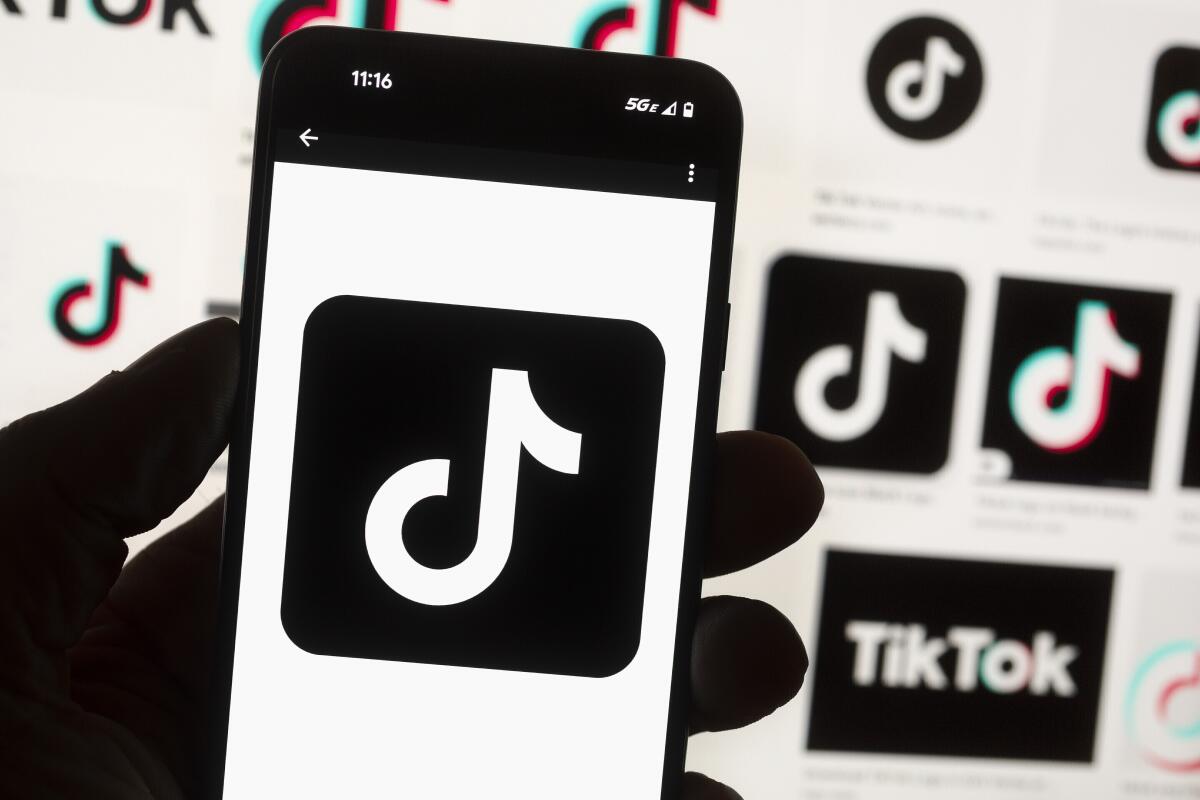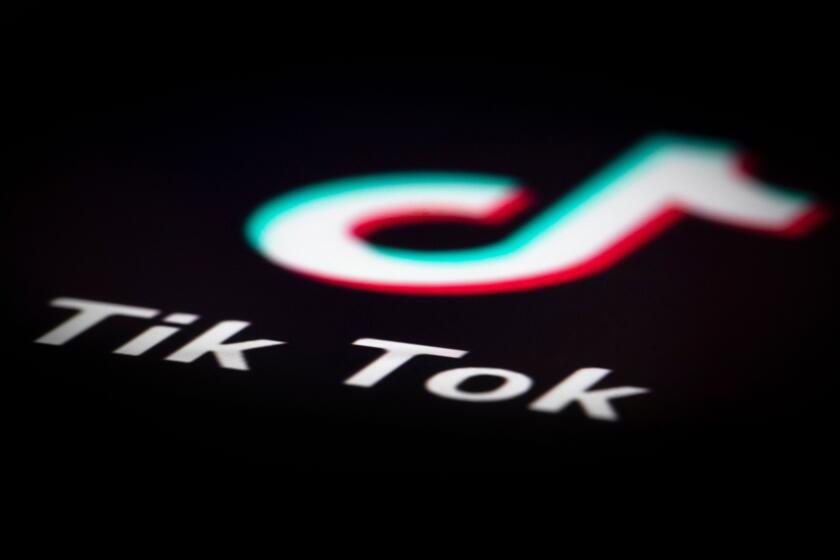Federal agencies ordered to remove TikTok from government devices within 30 days

- Share via
WASHINGTON — The White House is giving all federal agencies 30 days to wipe TikTok off all government devices, as the Chinese-owned social media app comes under increasing scrutiny in Washington over security concerns.
The Office of Management and Budget calls the guidance, issued Monday, a “critical step forward in addressing the risks presented by the app to sensitive government data.” Some agencies, including the departments of Defense, Homeland Security and State, already have restrictions in place; the guidance calls on the rest of the federal government to follow suit within 30 days.
The White House already does not allow TikTok on its devices.
“The Biden-Harris Administration has invested heavily in defending our nation’s digital infrastructure and curbing foreign adversaries’ access to Americans’ data,” Chris DeRusha, the federal chief information security officer, said in a statement. “This guidance is part of the Administration’s ongoing commitment to securing our digital infrastructure and protecting the American people’s security and privacy.”
The guidance was first reported by the Reuters news agency.
Congress passed the “No TikTok on Government Devices Act” in December as part of a sweeping government funding package. The legislation does allow for TikTok use in certain cases, including for national security, law enforcement and research purposes.
Canada’s ban of TikTok from all government mobile devices reflects growing worries among Western officials over the Chinese-owned video-sharing app.
TikTok spokesperson Brooke Oberwetter said Monday: “The ban of TikTok on federal devices passed in December without any deliberation, and unfortunately that approach has served as a blueprint for other world governments. These bans are little more than political theater.”
Canada also announced Monday that it was banning TikTok from all government-issued mobile devices. The European Union’s executive branch said last week that it had temporarily banned the app from phones used by employees, as a cybersecurity measure.
In the U.S., House Republicans are expected to move forward Tuesday with a bill that would give Biden the power to ban TikTok nationwide. The legislation, proposed by Rep. Michael McCaul (R-Texas), looks to circumvent the challenges the administration would face in court if it moved forward with executive sanctions against the social media company.
If passed, the proposal would allow the administration to ban not only TikTok but any software applications that threaten national security. McCaul, the chairman of the House Foreign Relations Committee, has been a vocal critic of the app, saying it was being used by the Chinese Communist Party to “manipulate and monitor its users while it gobbles up Americans’ data to be used for their malign activities.”
The California college student suing TikTok and ByteDance also alleges her videos were used to create an online profile for targeted ads.
“Anyone with TikTok downloaded on their device has given the CCP a backdoor to all their personal information. It’s a spy balloon into your phone,” McCaul said in a statement Monday.
Sen. Bob Menendez (D-N.J.), McCaul’s counterpart in the Senate, did not shut down the idea of the chamber taking up a proposal that would empower Biden to take action against TikTok, saying it was “certainly something to consider.”
Oberwetter said: “We hope that when it comes to addressing national security concerns about TikTok beyond government devices, Congress will explore solutions that won’t have the effect of censoring the voices of millions of Americans.”
TikTok, owned by ByteDance, remains extremely popular and is used by two-thirds of teens in the U.S. But there is increasing concern that Beijing could obtain control of American user data from the app.
The company has been dismissive of the ban for federal devices and has noted that it is developing security and data privacy plans as part of the Biden administration’s ongoing national security review.
More to Read
Sign up for Essential California
The most important California stories and recommendations in your inbox every morning.
You may occasionally receive promotional content from the Los Angeles Times.











